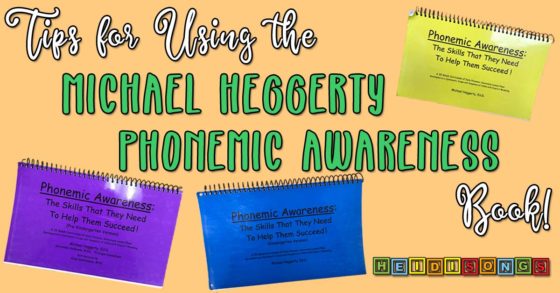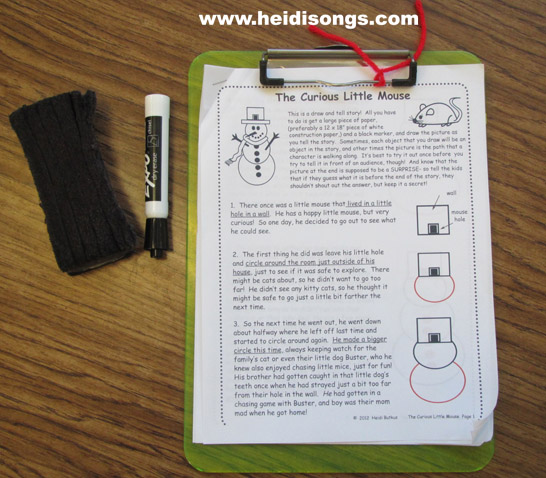Why Reading 30 Minutes A Day Matters
Have you heard the news? We've Moved to HeidiSongs.tv!
Our new website features an online video streaming service, updated blog posts at Heidisongs.blog, and a wealth of fresh resources designed to make learning even more fun and engaging.
You can also continue shopping for our educational products there and at our Teachers Pay Teachers store!
Head over to HeidiSongs.tv now and explore all the exciting new features.
See you there!
__________________________________________________________________________
This is a wonderful explanation of why it is important for your child to read every day. A great teacher at my school passed this information on to me, and I thought it was important to post here in the hope that more people can pass this around to those that matter most in children’s lives: their parents! You can download the infographic you see below in both color and black and white by clicking here.
"Why can't I skip my 30 minutes of reading tonight?"
"Why can't I skip my 30 minutes of reading tonight?"
Let's figure it out --- MATHEMATICALLY!
Student A reads 30 minutes a night;
Student B reads only 5 minutes a night
Step 1: Multiply minutes a night x 7 times each week.
Student A reads 210 minutes a week.
Student B reads 35 minutes a week.
Step 2: Multiply minutes a week x 4 weeks each month.
Student A reads 840 minutes a month.
Student B reads 140 minutes a month.
Step 3: Multiply minutes a month x 12 months a year.
Student A reads 10,080 minutes a year.
Student B reads 1,680 minutes a year.
Student A practices reading the equivalent of 28 whole school days a year.
Student B gets the equivalent of only 5 school days of reading practice.
By the end of 6th grade if Student A and Student B maintain these same reading habits:
Student A will have read the equivalent of 60 whole school days
Student B will have read the equivalent of only 12 school days.
One would expect the gap of information retained will have widened considerably, and so undoubtedly will school performance. How do you think Student B will feel about him/herself as a student?
Some questions to ponder:
Student A reads 30 minutes a night;
Student B reads only 5 minutes a night
Step 1: Multiply minutes a night x 7 times each week.
Student A reads 210 minutes a week.
Student B reads 35 minutes a week.
Step 2: Multiply minutes a week x 4 weeks each month.
Student A reads 840 minutes a month.
Student B reads 140 minutes a month.
Step 3: Multiply minutes a month x 12 months a year.
Student A reads 10,080 minutes a year.
Student B reads 1,680 minutes a year.
Student A practices reading the equivalent of 28 whole school days a year.
Student B gets the equivalent of only 5 school days of reading practice.
By the end of 6th grade if Student A and Student B maintain these same reading habits:
Student A will have read the equivalent of 60 whole school days
Student B will have read the equivalent of only 12 school days.
One would expect the gap of information retained will have widened considerably, and so undoubtedly will school performance. How do you think Student B will feel about him/herself as a student?
Some questions to ponder:
Which student would you expect to read better? Which student would you expect to know more? Which student would you expect to write better? Which student would you expect to have a better vocabulary? Which student would you expect to be more successful in school....and in life?
WHY READ 30 MINUTES A DAY?
WHY READ 30 MINUTES A DAY?
*If daily reading begins at day one, by the time the child is five years old, he or she has been fed roughly 54,750 minutes of brain food!
*Reduce that experience to just 30 minutes two times a week for five years, and the child's hungry mind gains only 15,600 minutes of nursery rhymes, fairy tales, and stories.
*Reading to a child just one time a week over the course of 5 years, means a child is only relieving 7,800 minuets of language.
*A kindergarten student who has not been read aloud to could enter school with less than 60 hours of literacy nutrition.
No teacher, no matter how talented, can make up for those lost hours of mental nourishment.
Source: U.S. Department of Education, America Reads Challenge (1999) "Start Early, Finish Strong: How to Help Every Child Become a Reader." Washington D.C.
Looking for some reading inspiration? Check out these great titles and more on our website!
P.S. Don't forget all our videos are available to STREAM on UScreen, FREE for the first 30 days! It's an awesome way to bring some EASY, active learning to your students during this time, and they can always cancel right before they are ever charged, like on day 29! Check out the info page on our website for more info!
----------------------------------
Follow me! Did you enjoy this post? Do me a favor and share it with your friends! And follow this blog by signing up for my email updates here, and follow me on TPT! I'm also on Pinterest, Facebook, Twitter, Instagram, and YouTube, too! Don't forget to sign up for our email newsletter for special deals and promo codes that you won't find out about anywhere else.
Source: U.S. Department of Education, America Reads Challenge (1999) "Start Early, Finish Strong: How to Help Every Child Become a Reader." Washington D.C.
Looking for some reading inspiration? Check out these great titles and more on our website!
P.S. Don't forget all our videos are available to STREAM on UScreen, FREE for the first 30 days! It's an awesome way to bring some EASY, active learning to your students during this time, and they can always cancel right before they are ever charged, like on day 29! Check out the info page on our website for more info!
----------------------------------
Follow me! Did you enjoy this post? Do me a favor and share it with your friends! And follow this blog by signing up for my email updates here, and follow me on TPT! I'm also on Pinterest, Facebook, Twitter, Instagram, and YouTube, too! Don't forget to sign up for our email newsletter for special deals and promo codes that you won't find out about anywhere else.











